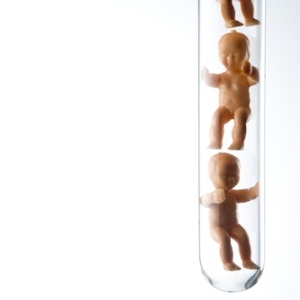
As British lawmakers vote on Tuesday on whether to legalise the creation of babies made from the DNA of three people, here are some questions and answers about the proposed techniques and the controversy surrounding them.
Why are scientists proposing this?
The new fertility techniques are intended to help women who are carriers of mitochondrial disease from passing it on to their children. Mitochondria are the energy-producing structures outside of a cell's nucleus, and defects in them can result in degenerative diseases including muscular dystrophy, problems with the heart, kidneys, severe muscle weakness, epilepsy and mental retardation.
Read: People choose spouses with similar DNA
Scientists would remove the nucleus DNA from the egg of a prospective mother and insert it into a donor egg from which the nucleus DNA has been removed. That can be done either before or after fertilisation. The resulting embryo has nucleus DNA from its parents but the mitochondrial DNA from the donor. Scientists say the DNA from the donor egg is less than 1 percent of the resulting embryo's genes.
How widely would this be used?
Experts estimate only about a dozen British women would be considered for these techniques every year and that some women may choose other ways to have children, such as egg donation or adoption. Clinics that offer the techniques will have to apply for a special license and any children born afterward will be closely monitored for potential health problems. Experts estimate the first baby born from these techniques could come within the next three years.
Is this allowed anywhere else?
Not legally. There are no mitochondria replacement treatments approved by the U.S. Food and Drug Administration. Last year, the agency held a meeting to discuss the techniques proposed in the U.K. and scientists said it's too soon to use them in humans, though monkeys have been produced using one of the techniques.
Who is opposed to this?
The Catholic Church has long opposed any artificial reproductive techniques that include fertilisation or the destruction of embryos. Last week, the Church of England voiced concern that there had not been enough scientific study or consultation of the techniques. Other critics say that because the genetic change made to the embryo or egg will be a permanent one that is passed on, it's impossible to know what impact they will have on future generations and if there are any safety problems.
Read more:
Artificial insemination
Parents hesitant to tell kids about artificial insemination
In-vitro fertilisation may increase risk of mental disability
Image: Plastic babies in test tube from Shutterstock




 Publications
Publications
 Partners
Partners














